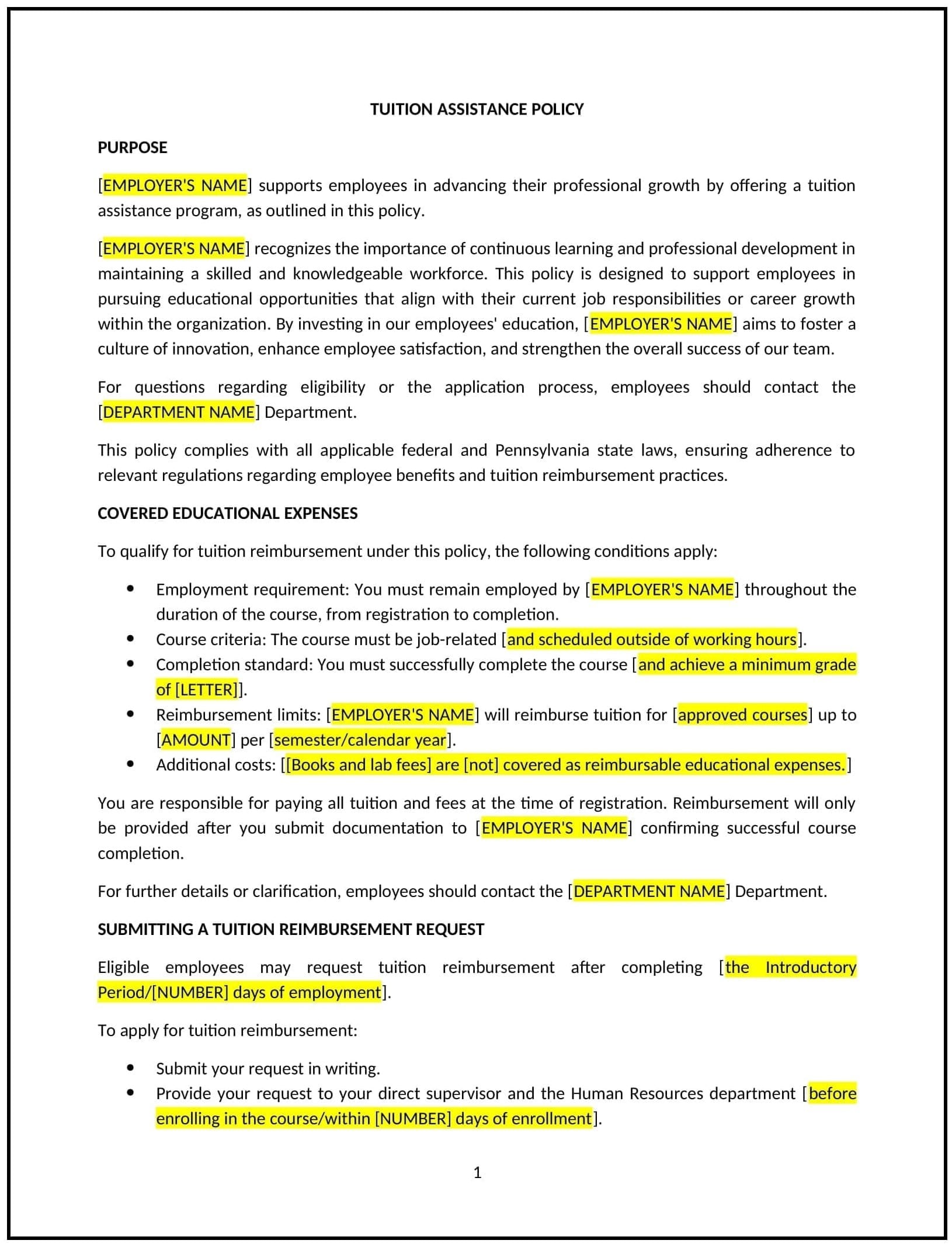Tuition assistance policy (Pennsylvania): Free template
Got contracts to review? While you're here for policies, let Cobrief make contract review effortless—start your free review now.

Customize this template for free
Tuition assistance policy (Pennsylvania)
This tuition assistance policy is designed to help businesses in Pennsylvania support employees pursuing educational opportunities that align with their roles or enhance their professional development. By outlining eligibility, reimbursement procedures, and funding limits, this template ensures transparency while fostering employee growth and organizational success.
By using this template, businesses can invest in their workforce, improve employee retention, and align with Pennsylvania workforce development goals.
How to use this tuition assistance policy (Pennsylvania)
- Define eligible programs: Clearly specify the types of educational programs covered, such as degree programs, certifications, or skill-based courses.
- Outline eligibility criteria: Provide guidelines for employee eligibility, such as length of service, job performance, and relevance of the program to their role.
- Set reimbursement limits: Specify funding limits, including annual caps or percentages of tuition reimbursed, and any conditions for repayment if employees leave the company.
- Include application procedures: Detail the process for employees to apply for tuition assistance, including timelines and required documentation.
- Reflect Pennsylvania-specific considerations: Tailor the policy to include local workforce trends or state initiatives that encourage employee education and development.
Benefits of using a tuition assistance policy (Pennsylvania)
A well-structured tuition assistance policy supports employee development and organizational growth. Here's how it helps:
- Encourages professional growth: Empowers employees to enhance their skills and knowledge, contributing to improved job performance.
- Improves retention: Demonstrates the company’s investment in employees’ futures, fostering loyalty and satisfaction.
- Supports compliance: Aligns with Pennsylvania laws regarding educational benefits and reimbursement practices.
- Promotes fairness: Establishes consistent guidelines for approving and managing tuition assistance requests.
- Reflects local needs: Addresses Pennsylvania workforce dynamics and aligns with regional education and labor market trends.
Tips for using a tuition assistance policy (Pennsylvania)
- Communicate the policy: Share the policy with employees during onboarding or performance reviews to encourage participation.
- Provide clear criteria: Ensure employees understand the eligibility requirements and expectations for reimbursement.
- Track participation: Monitor the educational progress of employees utilizing tuition assistance to measure program success.
- Encourage internal application: Highlight how the new skills and knowledge gained can be applied to the employee’s current role.
- Review periodically: Update the policy to reflect changes in Pennsylvania laws, educational trends, or organizational priorities.